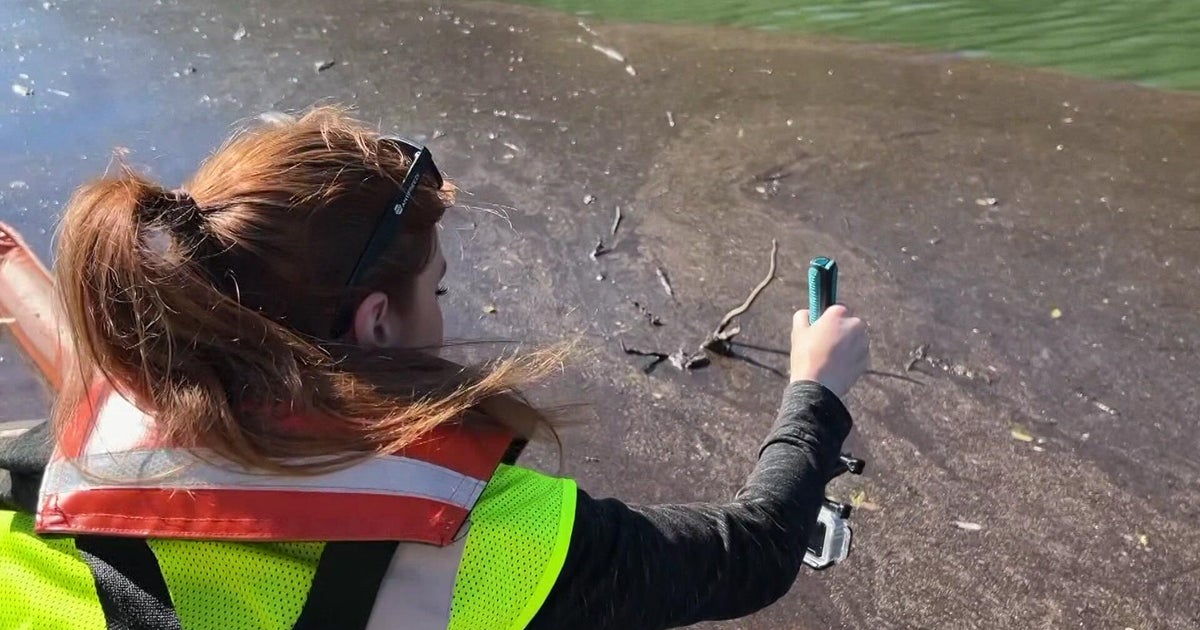Romulus city officials say shipments from East Palestine, Ohio came days before they were notified
ROMULUS, Mich. (CBS DETROIT) - City officials in Romulus say the first toxic waste shipments from East Palestine, Ohio, came days before local officials were notified.
According to an update from the city on Friday, Romulus Mayor Robert McCraight reached out to multiple agencies to investigate the shipments that were sent to Republic Industrial and Energy Solutions LLC.
Here is a breakdown, according to the City of Romulus:
- Feb. 10: Republic began receiving samples for testing of liquid coming from East Palestine
- Feb. 20: Romulus facility started receiving shipments
- Feb. 20-24: About 313,907 gallons of product from 63 shipments were sent to Romulus (an average of 4,000 to 5,200 gallons per shipment
"Lab results show the products discharged into the well satisfy the guidelines as set forth by both EPA and EGLE. Official documents obtained by the City of Romulus indicate that the product was comprised of 95-99% water. Even though the products appear to meet EPA's requirements, shipments into Michigan were stopped during the evening of Feb. 24, 2023," read a press release from the city.
This comes a week after local and state officials demanded shipments to be stopped. Wayne County Executive Warren Evans held a press conference on Feb. 24 -- along with Reps. Debbie Dingell and Rashida Tlaib -- and expressed frustration, saying he was unaware that shipments were coming.
"The fact that many of these trucks today have come to Wayne County and Wayne County government not knowing that they're coming, which way they're coming, how safe the trucks are that are coming, is something that's got us all very irritated," Evans said in the press conference.
Millions of gallons of waste from East Palestine -- the site of a train derailment that resulted in a fire, emergency evacuations and concerns for hazardous materials -- were sent to multiple states including Michigan.
In addition to the Romulus facility, shipments were also going to the U.S. Ecology Wayne Disposal Inc. landfill in Belleville.
According to the Michigan Department of Environment, Great Lakes, and Energy (EGLE), the department was notified of the shipments on Feb. 24.
EGLE says Norfolk Southern, who was the operator at the time of the derailment in Ohio, chose the sites for where to send the waste. The company was also involved in a train derailment in Van Buren Township.
"Michigan EGLE became aware of the shipments early today (Feb. 24) and is working to monitor the disposal of hazardous soil and liquids from the Ohio train derailment at licensed hazardous waste facilities in Michigan to ensure that all health and environmental protection laws and procedures are rigorously adhered to," the department said in a statement last week.
On Friday, March 3, the department says the U.S. Environmental Protection Agency is in charge of the decisions related to waste disposal and "promised to let us know beforehand if any is coming our way and so far we have not heard anything."
A representative with the office of Gov. Gretchen Whitmer said last week that the State of Michigan did not authorize the shipment.
Romulus city officials say the mayor has met with elected officials and organizations to determine the next steps.
"This is a regional issue, not just a Romulus issue, we have to focus on overall transportation protocols and best practices. There has to be clear oversight and inspection processes that hold companies accountable to the citizen's safety, these should not be self-reporting processes," McCraight said in a statement. "We have to seriously consider if Michigan and the world's largest supply of fresh water is the best location for an injection well."
In a city council meeting on Monday, council members councilmembers said they "were blindsided" by the decision to bring toxic waste to Michigan. Another council member said, "I'm sick and tired of people trying to dump stuff in Romulus."
Community members protested on Sunday, sharing their concerns not just about the environmental issues, but also with the lack of communication with county officials and the public.







